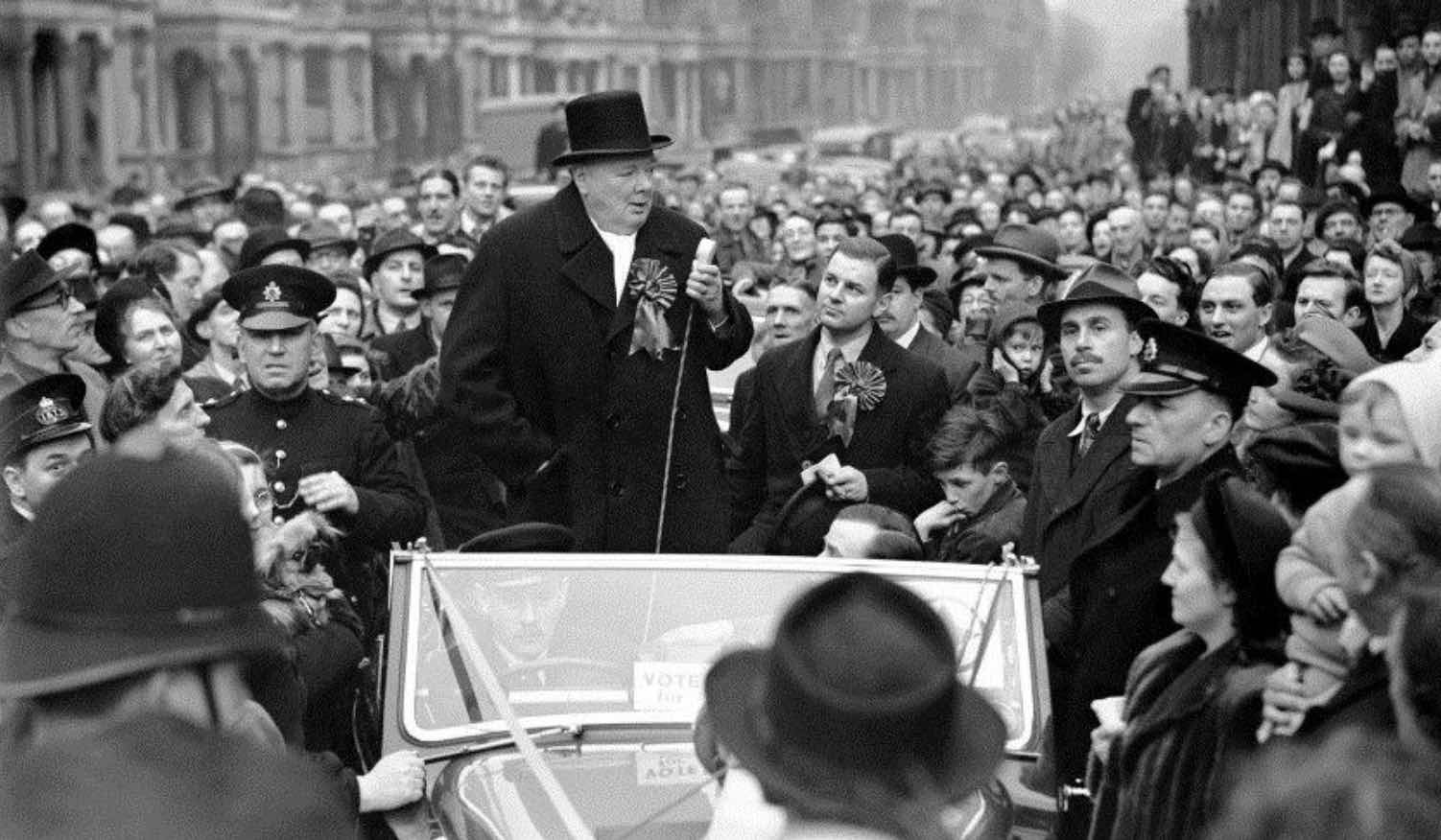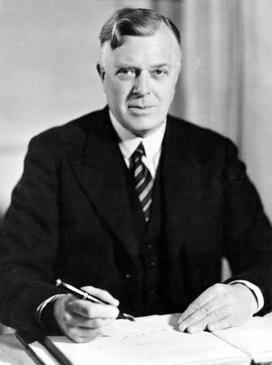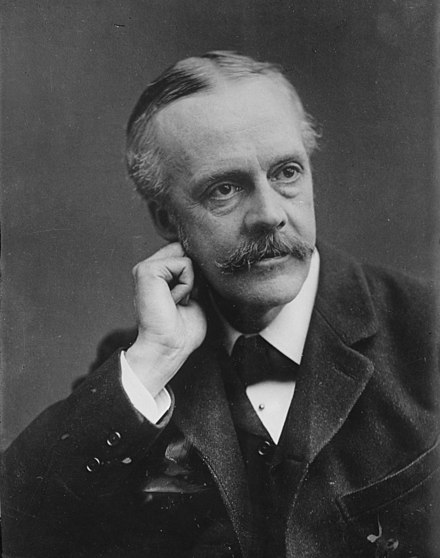
Churchill’s Potent Political Nicknames: Adm. Row-Back to Wuthering Height
Sporadically, pundits compare Donald Trump with Winston Churchill. There’s even a book coming out on the subject. I deprecate all this by instinct and will avoid that book like the Coronavirus. Surface similarities may exist: both said or say mainly what they thought or think, unfiltered by polls (and sometimes good advice). But Churchill’s language and thought were on a higher plane. Still, when a friend said that Churchill never stooped to derisive nicknames like Trump, I had to disagree.
Whether invented by the President or his scriptwriters, some of Trump’s nicknames were very effective. “Low-energy Jeb” torpedoed Governor Bush‘s 2016 presidential campaign better than any debate gaffe. “Mini-Mike” didn’t help Mayor Bloomberg‘s in 2020. But except in extreme cases like Hitler, Churchill’s name-calling was more effective and less wounding. Especially when he rather admired certain qualities in opponents. (He called Lloyd George a “cad” in his youth, but ever after praised the “Welsh Wizard.”)
* Asterisks indicate nicknames not used in a public setting. Churchill, after all, had some discretion. But I leave them in for fun.
Nicknames: Admiral Row-Back to Can’t Tellopolus
Admiral Row-Back: Admiral Sir John Roebuck (1862-1928), Royal Navy officer. Commanded the initial Anglo-French attempt to force the Dardanelles in 1915. Having nearly succeeded, he turned back after losses to mines, incurring Churchill’s permanent loathing and censure and an appropriate nickname.
*Block: Herbert H. Asquith (1852-1928), Liberal Prime Minister, 1908-16. He let Churchill dangle in the Dardanelles/Gallipoli debacle, which sent WSC packing as First Lord of the Admiralty. This was a private nickname between Churchill and his wife. It may refer to Asquith’s frequent role as a block to Churchill’s proposals.
Bloodthirsty Guttersnipe: Adolf Hitler (1889-1945), German Chancellor and Führer, 1933-45. First publicly declared in a broadcast after Hitler invaded the Soviet Union in June 1941. It wasn’t the first Churchillian jab, nor by any means the last.. There is no shortage of insulting nicknames in Hitler’s case; but this is as good an example as any. (See also “Corporal Schicklgrüber,” in comments below.)
Boneless Wonder: James Ramsay MacDonald (1866-1937), Labour Prime Minister, 1924, 1929-35. A devastating comparison to a circus attraction, applied in 1931. Churchill was ridiculing Ramsay Mac’s lack of principle and wavering domestic policies. In private he considered MacDonald a servant of Crown and Parliament. But only in private.

Canting Bus Driver: Frank Pick (1878-1941), headed London Passenger Transport Board 1933-40. “Never let me see that-that-that canting bus driver again.” Churchill wrote this in red ink on a memorandum from Minister of Information Alfred Duff Cooper when Pick resigned.
*Can’t Tellopolus: Panagiotis Kannelopoulos (1902-1986), Minister of Defense, Greek exile government in Cairo, 1942-45. Churchill was impatient with his indecision about Greek resistance to the occupying Germans. Alexander Cadogan, Undersecretary of State for Foreign Affairs, heard these “mutterings from Churchill’s bathroom, between the splashings and gurgles.”
Chattering Cad – Green-Eyed Radical
*Chattering Little Cad: David Lloyd George (1863-1945), Liberal Prime Minister 1916-22. Said in 1901, when Churchill was still a Conservative. After he switched to the Liberals in 1904, his attitude changed. He rarely spoke ill of Lloyd George afterward, despite many provocations. WSC’s wife regarded LG as treacherous. He duly refused to join the Churchill coalition in 1940.
*Coroner: Neville Chamberlain (1869-1940). Conservative Prime Minister, 1937-40. Originally coined by Brendan Bracken (also “Ironmonger” for Baldwin), this remained in the family lexicon. In 1961, Lady Diana Cooper introduced young Martin Gilbert to Randolph Churchill by saying “he hates the Coroner.” (A bit strong—he surely didn’t hate Chamberlain).
*Dull, Duller, Dulles: John Foster Dulles (1888-1959), President Eisenhower’s Secretary of State, 1952-60. After Stalin’s death, Churchill argued for a “settlement” of the Cold War, but Dulles (and Eisenhower) were obdurate. “Ten years ago I could have dealt with him. Even as it is I have not been defeated by this bastard. I have been humiliated by my own decay.” —Churchill at the Bermuda Conference, December 1953.
Green-eyed Antipodean Radical: David Low (1891-1963), New Zealand cartoonist. Churchill had a certain affinity for the left-wing cartoonist whose attacks he admired. He called Low the greatest of modern cartoonists. There was mutual respect despite political differences, and Low drew a beautiful cartoon tribute on WSC’s 80th birthday.
Half-Naked Fakir – Llama
Half-Naked Fakir: Mohandas Gandhi (1869-1948, Indian independence leader. The worst sobriquet attached to the Great Mahatma, when Churchill thought Gandhi an upperclass Brahman posing as a champion of the downtrodden. Yet they both nursed a private respect for each other and, in the end, were more forgiving. See “Welcome, Mr. Gandhi” herein.
Holy Fox: Edward Wood, 3rd Viscount Halifax (1881-1959, Foreign Minister, 1938-40, Ambassador to Washington, 1940-46. Verified by Halifax biographer Andrew Roberts, who writes: “It was a Churchill family nickname, of course a reference to his High Church beliefs as well as his love of hunting. And a certain amount of political foxiness….”
*Home Sweet Home: Alec Douglas-Home, Lord Home of the Hirsel (1903-1995), British Prime Minister 1963-64. Neville Chamberlain’s “eyes and ears” in Parliament, he always maintained that the Munich deal had saved Britain by giving it an extra year to prepare for war, ignoring the fact that it also gave Hitler an extra year, and he prepared far more rapidly. (His name was pronounced “Hume,” but that didn’t stop Churchill.)
*Llama: Charles de Gaulle ( 1890-1970 ), French General and President. Lord Moran wrote: “Was it true, [Lady Limerick] asked, that he had likened de Gaulle to a female llama who had been surprised in her bath? Winston pouted, smiled and shook his head. But his way of disavowing the remark convinced me that he was in fact responsible for this indiscretion…”
Limpet to Prince Palsy
Lion-hearted Limpet Leader: Clement Attlee (1883-1967), Labour Prime Minister 1945-51. Many disparaging cracks about Attlee (arriving in an “empty taxi”) are apocryphal. But this was an April 1951 jibe at Attlee and Labour MPs clinging to power. Churchill and the Conservatives turned them out in a general election the following October.
Minister of Disease: Aneurin Bevan (1897-1960), Labour Minister of Health 1945-51, founder of the National Health Service. One of the rougher nicknames, applied in the Commons, 1948. “…is not morbid hatred a form of mental disease, and indeed a highly infectious form?” Churchill asked. He also called Bevan a “squalid nuisance.”

Old Grey Tabby: Arthur James Balfour (1848-1930), Conservative Prime Ministers, 1902-05. After he succeeded Churchill at the Admiralty in 1915, WSC feared the “Old Grey Tabby” would dissolve the Royal Naval Division. (Balfour did resemble a tabby cat in old age, but Churchill continued to admire him, and memorialized him in Great Contemporaries.)
Pink Pansies: Harold Nicolson (1886-1968) and his friends. Member of Parliament, 1935-45. I am aware this violates P.C. decorum and will no doubt be added to Churchill’s “sins.” True, Nicolson was bisexual, but a) Churchill was emphatically not homophobic, and b), the reference (Parliament, late 1945) was to non-combative young Tory MPs.
Prince Palsy: Paul of Yugoslavia (1893-1976), Prince Regent of Yugoslavia, 1934-41. His palsied hand signed a treaty with Hitler. This assured German occupation, the end of his Regency, and Churchill’s disdain. Exiled in Kenya, he appealed for refuge in Britain, but Churchill considered him a traitor and war criminal.
Scheming Prelate to Turnip
Scheming Prelate: Damaskinos Papandreou (1891-1949), Archbishop of Athens, 1945-49. Churchill, mediating the Greek civil war in late 1944, allegedly asked if he was “a man of God or a scheming Mediterranean prelate?” Assured that he was the latter, Churchill supposedly said, “Good, he’s just our man.” (Not verified)
Snub-nosed Radical: Liberal heckler, 1887. Aged only twelve, young Winston was attending a pantomime where he heard a man hissing a portrait of his father. He burst into tears, then turned on the perpetrator: “Stop that row, you snub-nosed radical!” This may be Churchill’s first political zinger.
Spurlos Versenkt (Sunk without a Trace): Sir Benjamin Smith (1879-1964), Labour Minister of Food, 1944-46. After he resigned from Parliament, Churchill searched “for the burly ‘and engaging form of the Rt. Hon. Gentleman. He has departed ‘spurlos versenkt,’ as the German expression says—sunk without leaving a trace behind.”
Turnip: Stanley Baldwin (1867-1947), Conservative Prime Minister, 1925-29, 1935-37. Baldwin made Churchill Chancellor in 1925, but later kept him out of the Cabinet. After his final resignation, “S.B.” appeared in the House of Commons smoking room. Churchill quipped, “Well, the light is at last out of that old turnip.”
Useless Percy to Wuthering Height
*Useless Percy: Eustace Percy, First Baron of Newcastle (1887-1958). Board of Education President, 1924-29. At the Exchequer 1924-29, Churchill tried to lower the defense budget. Percy and Minister of Health Chamberlain were opposed. “Neville is costing £2 millions more and Lord Useless Percy the same,” WSC wrote his wife on 30 September 1927. “…these civil departments browse onwards like a horde of injurious locusts.”
Whipped Jackal: Benito Mussolini (1883-1945), Italian Prime Minister, 1922-43, Duce of Fascism, 1943-45. Churchill praised him briefly before the war, but after joining Hitler he became a “whipped jackal… frisking up at the side of the German tiger with yelpings not only of appetite—that can be understood—but even of triumph!”
Wincing Marquess: Henry Petty-Fitzmaurice, 5th Marquess of Lansdowne (1845-1927), House of Lords, 1886-1927. Churchill, 1909: “he claimed no right…to mince the Budget, [only] the right to wince when swallowing it. Well, that is a much more modest claim…. If his Party are satisfied with the Wincing Marquess, we have no reason to protest.”
*Wuthering Height: John Charles Walsham, 1st Baron Reith (1889-1971), BBC Director General, 1923-38. The towering Reith was briefly in the wartime Coalition Cabinet. But he’d kept Churchill off the air in the 1930s, and no love was lost between them. WSC rejoiced to have seen “the last of that Wuthering Height” around 1940.







7 thoughts on “Churchill’s Potent Political Nicknames: Adm. Row-Back to Wuthering Height”
Good one, I’ll add it to the list!
Wonderful! Added to the list.
Thanks for that! Or even better, “Corporal Schicklgrüber.”
I think my favorite nickname he gave Hitler was not so much a nickname, but a reminder of Hitler’s highest rank achieved in the army. “They have of course the consolation of knowing that they have been commanded and led, not by the German General Staff, but by Corporal Hitler himself.” —World Broadcast, 29 November 1942.
Highly amusing superb research
Holy Fox for Lord Halifax?
Excellent list – many thanks.
Subscribers might like to add to it.
One of my favourites (particularly thorny when you have to translate it into French, as I had to do on at least two occasions, since a French eye does not perceive the joke) : “Useless” Percy for Eustace Percy (attested in published letters to Clementine).
Comments are closed.